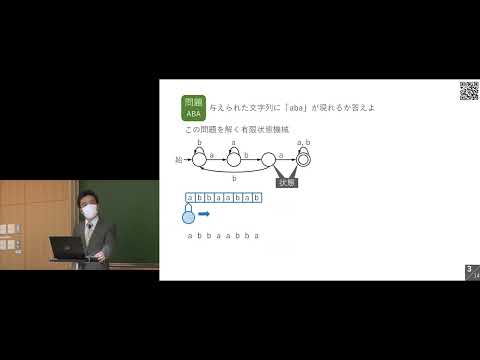Description:
Save Big on Coursera Plus. 7,000+ courses at $160 off. Limited Time Only!
Grab it
Learn about computational complexity theory in this Japanese lecture from the Research Institute for Mathematical Sciences at Kyoto University. Explore how computers extend human mathematical capabilities and problem-solving abilities, while examining why certain problems remain inherently complex despite technological advances. Delve into fundamental concepts including finite state machines, their limitations, Turing machines, and the Church-Turing thesis. Understand how to measure the complexity of mathematical objects through the lens of computational difficulty, with detailed explanations of key theoretical principles, practical applications, and unsolved conjectures in complexity theory. The lecture, delivered by Associate Professor Akitoshi Kawamura, is the first in a four-part series and includes comprehensive coverage from basic problem definitions to advanced theoretical frameworks.

計算量理論入門 - 問題と機械 - 第1回
Add to list
#Computer Science
#Algorithms
#Computational Complexity Theory
#Mathematics
#Mathematical logic
#Automata Theory
#Finite State Machine
#Theoretical Computer Science
#Turing Machines